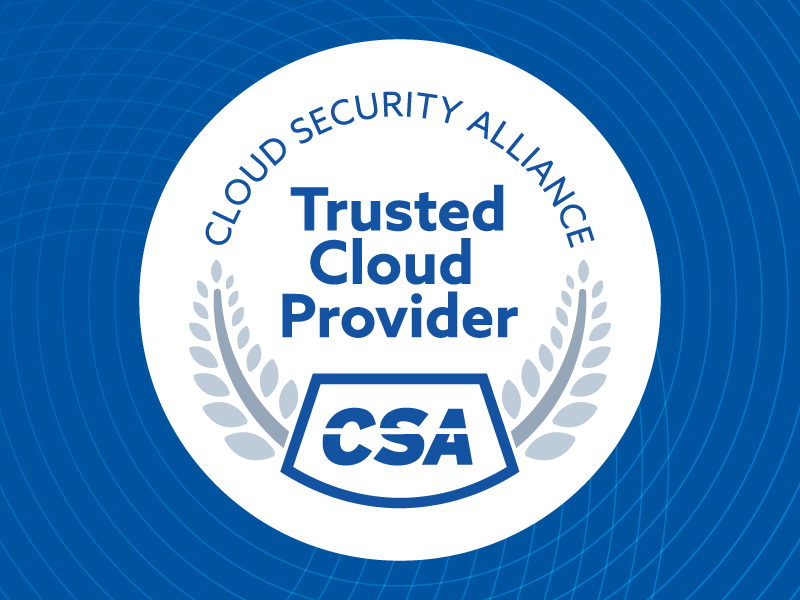Cybersecurity Regulations and the Impact on Consumers
Published 03/13/2024
Originally published by RegScale.
The theme for this year’s Cybersecurity Awareness Month, “Secure Our World,” underscores the importance of cybersecurity in our daily lives. This theme serves as a reminder that despite the convenience and connectivity of the digital age, there are inherent risks involved.
As consumers, we must navigate a complex online landscape where our personal and financial information is continually under threat. This leads us to explore the topic of cybersecurity regulations and their profound impact on consumers. And when data breaches and cyberattacks are increasingly common, these regulations play a pivotal role in safeguarding our information. They establish a framework that businesses must adhere to, not only to protect their interests but also to ensure the security and privacy of their customers.
In the context of our interconnected digital society, the nexus between Cybersecurity Awareness Month’s theme and the exploration of cybersecurity regulations is clear. While the theme encourages individuals to take responsibility for their online safety, it also highlights the broader societal implications of cybersecurity. The constant risk of data theft or compromise underscores the critical need for regulations that hold businesses accountable for safeguarding consumer information. By delving into the impact of these regulations, we gain insight into how they contribute to a safer online environment and provide consumers with the confidence they need to engage without fear of their personal and financial data falling into the wrong hands.
There are a number of different cyber regulations in place around the world, but some of the most important ones include:
- The General Data Protection Regulation (GDPR) in the European Union
- The California Consumer Privacy Act (CCPA) in California
- The Gramm-Leach-Bliley Act (GLBA) in the United States
- The Cybersecurity Act of 2015 in the United States
These regulations vary in their scope and requirements, but they all share a common goal of protecting consumers’ personal information. For example, the GDPR requires businesses to obtain consent from consumers before collecting or processing their personal data. The CCPA gives consumers the right to know what personal information businesses have collected about them and to delete that information. And the GLBA requires financial institutions to protect the privacy and security of their customers’ financial information.
Cyber regulations can have a significant impact on consumers. For example, they can make it more difficult for businesses to collect and use personal information. They can also increase the cost of doing business for businesses. However, cyber regulations also provide important protections for consumers. They help to ensure that businesses are taking reasonable steps to protect their data, and they give consumers the right to access and control their personal information.
As threat actors continue to utilize tools that take advantage of unknowing consumers, cyber regulations are becoming increasingly important. They are an essential part of the effort to protect consumers’ personal information and to keep our digital world safe.
Here are some of the ways that cyber regulations can impact consumers:
- They can give consumers more control over their personal information. For example, the GDPR gives consumers the right to request that businesses delete their personal data.
- They can help to prevent data breaches. By requiring businesses to implement strong security measures, cyber regulations can help to keep personal information safe from unauthorized access.
- They can provide consumers with recourse if their personal information is compromised. For example, the GDPR requires businesses to notify consumers of data breaches within 72 hours.
Overall, cyber regulations can play an important role in protecting consumers from cybercrime. By giving consumers more control over their personal information, helping to prevent data breaches, and providing recourse if their information is compromised, cyber regulations can help to keep our digital world safe.
What can consumers do to protect themselves?
In addition to the protections offered by cyber regulations, consumers can proactively protect themselves by:
- Using strong passwords and changing them regularly
- Never reuse a password on multiple sites or applications
- Being careful about what information they share online
- Keeping their software up to date
- Being wary of phishing emails and other online scams
By taking these steps, consumers can help to protect themselves and keep their personal information safe.
Unlock Cloud Security Insights
Subscribe to our newsletter for the latest expert trends and updates
Related Articles:
Token Sprawl in the Age of AI
Published: 02/18/2026
Breaking Down the SOC 2 Trust Services Criteria: Privacy
Published: 02/18/2026
AI Governance and ISO 42001 FAQs: What Organizations Need to Know in 2026
Published: 02/17/2026
How CSA STAR Helps Cloud-First Organizations Tackle Modern Identity Security Risks
Published: 02/13/2026









